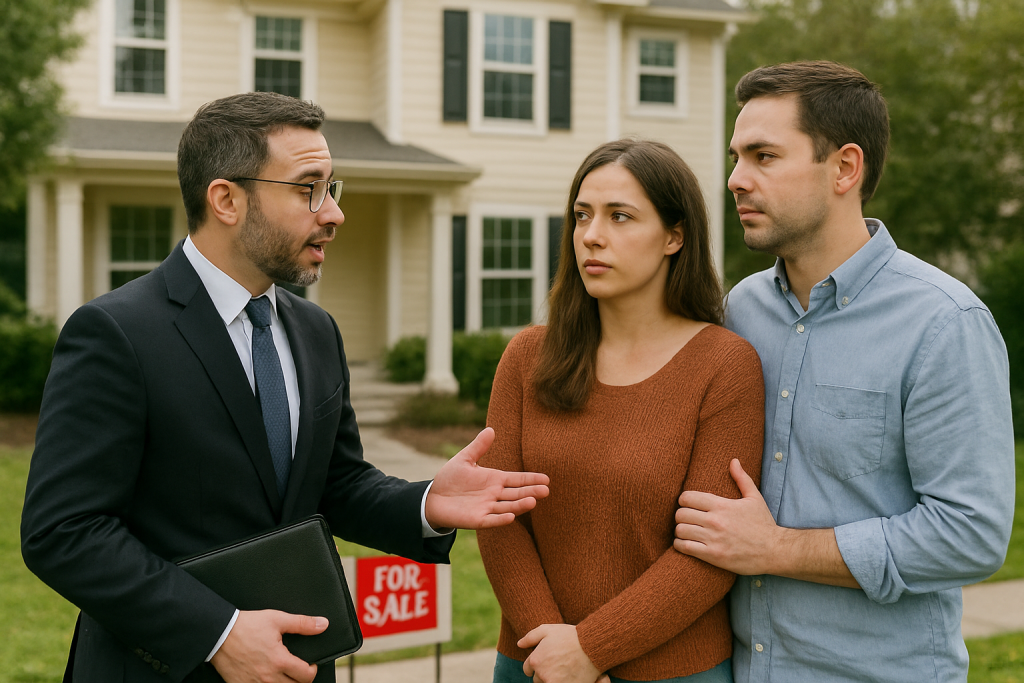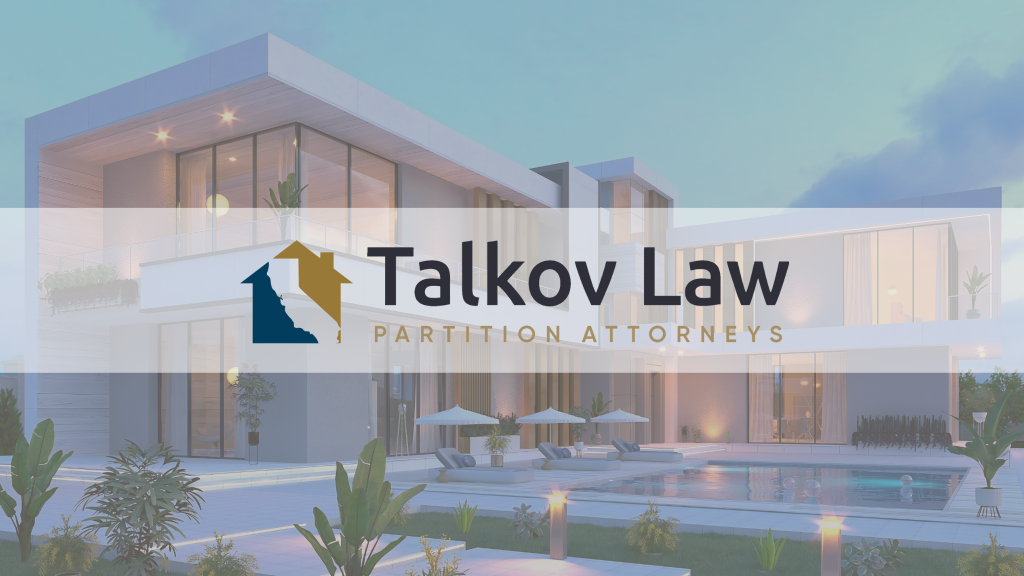Resolve Your Property Dispute Quickly, No Upfront Costs
Partition Attorneys in Upland, Fontana, and Ontario
Disputes between co-owners in Rancho Cucamonga can be overwhelming, but the law provides a clear path to resolution. Talkov Law offers experienced partition attorneys with deep knowledge of local property regulations, ensuring successful outcomes through strong negotiation and meticulous attention to detail.
- Zero Partitions Denied
- 500+ Partition Cases Filed
- Most Cases Resolved in Under 7 Months
- Qualified Cases May Pay at the End; Monthly Billing Also Available
Call Now at (909) 577-3300

Take the Next Step Toward Ending Your Partition Dispute
Partition disputes are complex—our attorneys guide you every step of the way while we manage the legal burdens.
Co-Ownership Conflict? Not Anymore.
Settle your co-ownership dispute quickly, typically in less than 7 months, with no money due upfront.
As the only California law firm dedicated to partition actions, Talkov Law has helped hundreds in the same situation you’re facing.
Schedule Your Free Consultation Now
Speak with our partition attorneys for free and learn how the law protects your equity.

Take Control With Legal Action

Collect Your Share Today
What is a Partition Action?
A partition action is a lawsuit that lets the court decide how to divide or sell jointly owned real estate when co-owners disagree.
Common Scenarios
- Dividing inherited land among multiple heirs
- Land co-owned by extended relatives with conflicting plans
- Co-owners where one wants to live in the property and the other wants to sell
In California, any co-owner has an absolute right to partition real property under California Code of Civil Procedure 872.710.

The Partition Lawyers Trusted by Hundreds
From complex legal battles to life-changing victories, our clients share how Talkov Law helped them find clarity, confidence, and success.
Frequently Asked Questions About Rancho Cucamonga Partition Actions
Can you force a sale? What will it cost? How long will it take? This FAQ explains the essentials for co-owners. If your question isn’t covered, your free consultation is only a click away.
📞 Call (877) PARTITION 📞
How much does a Partition Action cost in Rancho Cucamonga?
Partition actions in Rancho Cucamonga come with a range of expenses, including attorney fees, court costs, appraisals, and other legal services. On average, these cases cost around $20,000, though simpler cases may cost as little as $5,000, while complex disputes involving high-value properties or uncooperative co-owners can go higher.
What happens if a co-owner won't cooperate in Rancho Cucamonga?
In Rancho Cucamonga, if a co-owner refuses to cooperate in a Partition Action, the other co-owner can file a lawsuit in the California Superior Court to request the court to order the sale or division of the property, ensuring fair distribution of proceeds or property among the co-owners.
Can I recover attorney's fees in Rancho Cucamonga?
In California, including Rancho Cucamonga, attorney's fees can be recovered in a partition action if the court finds it equitable to do so, typically by apportioning the fees among the parties in proportion to their interests in the property.
What if a co-owner made improvements or paid more in Rancho Cucamonga?
In Rancho Cucamonga, if a co-owner made improvements or paid more towards the property, they might be entitled to reimbursement or a larger share of the proceeds in a California Partition Action, as the court considers such contributions when determining the final division.

Rancho Cucamonga Real Estate and Legal Data
- In Rancho Cucamonga, the median home value is around $670,000.
- Rancho Cucamonga has an estimated population of 177,603.
- The average rent in Rancho Cucamonga is around $2,500 per month, as of 2024.
At Talkov Law, our Rancho Cucamonga Lawyers have resolved partition disputes in under 7 months with our expert partition strategies.
Why Choose Talkov Law for Your Partition Case?
- Dominant Experience: 500+ Partition Actions – Outpacing all other competitors
- Unique Experience: No California law firm but ours practices only partition law
- Proven Expertise: More than 16 years, all partitions granted


Partition Attorneys Throughout California
Talkov Law assists property co-owners across California in areas such as Orange County, Alameda County, Inland Empire, Silicon Valley, San Bernardino County, Contra Costa County, Fresno County, Ventura County, San Mateo County, Sonoma County, Santa Barbara County, Monterey County, Santa Cruz County, Long Beach, Oakland, Anaheim, Santa Ana, Irvine, Chula Vista, and Rancho Cucamonga
Partition Attorneys Serving All of San Bernardino County
Our attorneys have extensive experience handling partition actions across San Bernardino County.
Local Expertise in Neighborhoods Like: Upland, Fontana, and Ontario.
Your case will likely be heard at the San Bernardino County Superior Court, located at 247 West Third Street, San Bernardino, CA 92415.
Rancho Cucamonga Property Types and Features
- The most common types of houses in Rancho Cucamonga are single-family homes, townhouses, and condominiums.
- The average home size in Rancho Cucamonga is approximately 2,000 to 2,500 square feet. This size reflects the suburban nature of the area, where homes are typically larger to accommodate families and provide more living space.
- Rancho Cucamonga has specific zoning regulations that often require properties to maintain certain aesthetic standards, such as landscaping and architectural styles, to preserve community appearance. This can lead to disputes or challenges for property owners who wish to make modifications or improvements that do not align with these strict guidelines, potentially resulting in fines or legal action.
- In Rancho Cucamonga, more people are homeowners than renters. The area is more known for homeownership due to its suburban setting and family-friendly environment.

Rancho Cucamonga Partition Lawyer Near Me




































































































































